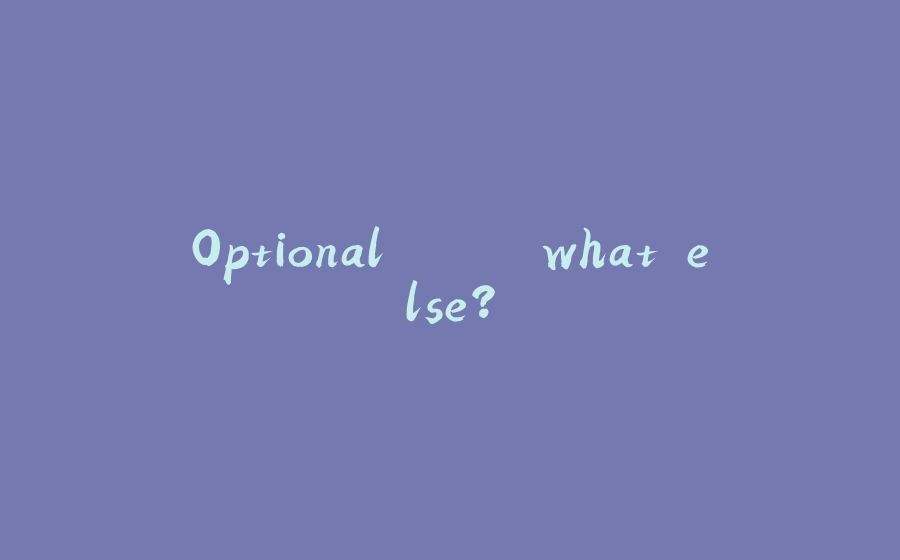Optional is in some ways, the Java implementation of the Maybe monad. Don’t get scared by the ‘M’ word. It is simply an encapsulation to handle a specific case of a type — in this case, the possibility of a null value. Just consider it a wrapper to force the user to check if the value is present or not.
When using an Optional in a declarative way, we are able to execute a map function on it. The lambda supplied with the map will only be executed if the Optional is filled with a value.
public void execute() {
Optional<String> maybeString = Optional.of("foo");
maybeString.map(this::runIfExist);
}
private String runIfExist(String str) {
System.out.println("only run if optional is filled ");
return str;
}
Enter fullscreen mode Exit fullscreen mode
When running the execute() method, the console output will obviously be:
only run if optional is filled
Enter fullscreen mode Exit fullscreen mode
If we change the code of maybeString to Optional.empty() and execute again, as expected, nothing happens.
Alternative Flow
That’s all nice, but when we want an alternative flow for when the Optional is empty, we can choose from else(), elseGet(), and elseThrow(). With the last one, we can throw an exception, but what if we want to do something different?
Intuitively, the following code looks quite obvious.
public void execute() {
Optional<String> maybeString = Optional.of("foo");
String newString = maybeString
.map(this::runIfExist)
.orElse(runIfEmpty());
System.out.println(newString);
}
private String runIfExist(String str) {
System.out.println("only run if optional is filled ");
return str;
}
private String runIfEmpty() {
System.out.println("only run if empty");
return "empty";
}
Enter fullscreen mode Exit fullscreen mode
By reading the code, we probably expect that newString will be given the value "foo" because maybeString is an Optional containing a value. When running the execute() method, the following output will end up in your console:
only run if optional is filled
only run if empty
foo
Enter fullscreen mode Exit fullscreen mode
We can still conclude that the newString will end up with the value "foo". The other thing we can see here, is that the string "only run if empty" is also printed to the console. That was something I didn’t expect at first sight. So even if the Optional contains a value, the method inside the orElse() is still being executed.
When we change the execute() method and use orElseGet() instead of orElse(), we also need to change the method call to runIfEmpty() into a supplier:
public void execute() {
Optional<String> maybeString = Optional.of("foo");
String newString = maybeString
.map(this::runIfExist)
.orElseGet(() -> runIfEmpty());
System.out.println(newString);
}
Enter fullscreen mode Exit fullscreen mode
If we now run the execute() method, we see the following:
only run if optional is filled
foo
Enter fullscreen mode Exit fullscreen mode
When using this implementation, we see that the supplier inside the orElseGet() is not executed. Intuitively, this is the behavior I would expect in general when you use orElse()
Conclusion
When using a map() to assign a value to a variable, there will not be any problem using orElse() for assigning a default value when the Optional is empty. You just have to make sure that the code inside the orElse() is absolutely side effect free. In fact, the purpose of the orElse() method is to assign a default value and nothing more than that.
On the other hand, if you need to steer behavior based on an Optional, you should use the orElseGet() construct. You probably don’t want your alternative flow to be executed anyway regardless of the value of the Optional.
Because of the nature of declarative programming, the mix-up is made very easily. Moreover, you will only see the result when you actually execute the code. So, of course, I can now advocate writing proper test code (and you should), but it is better to know the difference beforehand. The difference is subtle, but it can have a large impact if you are not aware of it.


























暂无评论内容